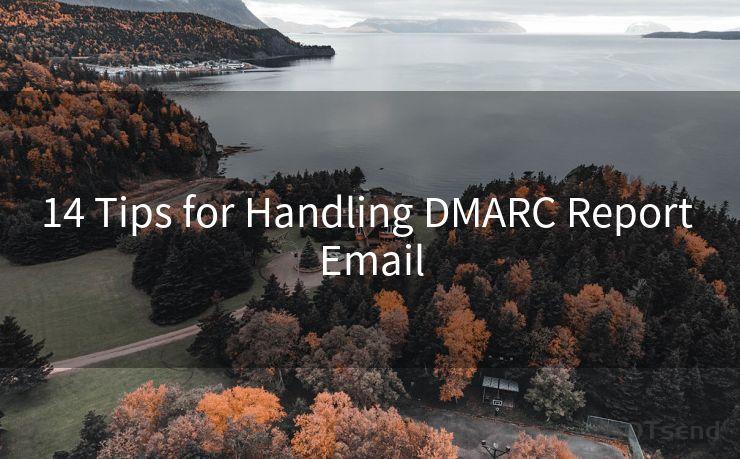14 Tips for Handling DMARC Report Email




Email authentication protocols, such as DMARC (Domain-based Message Authentication, Reporting, and Conformance), are crucial for protecting your domain from email spoofing and phishing attacks. DMARC generates reports that provide valuable insights into the authenticity and delivery of your emails. Handling these reports effectively can help you improve your email security posture. Here are 14 tips to help you make the most of DMARC report emails:
Tip 1: Understand DMARC Basics
Before diving into the reports, ensure you understand the fundamentals of DMARC, including how it works and what it aims to achieve. This knowledge will help you interpret the reports accurately.
Tip 2: Set Up a Dedicated Email Address for Reports
Create a specific email address to receive DMARC reports. This helps in organizing and managing the influx of information.
Tip 3: Regularly Check Your Reports
Make it a habit to check your DMARC reports regularly. This allows you to stay updated on any potential issues and take prompt action.
Tip 4: Analyze the Data
DMARC reports contain valuable data about your email traffic. Analyze this data to identify patterns, such as suspicious IP addresses or domains attempting to spoof your emails.
Tip 5: Identify and Address Authentication Failures
Look for authentication failures indicated in the reports. These could be signs of malicious activity or misconfigurations that need to be addressed.
Tip 6: Verify Your DNS Settings
Ensure that your DNS settings, including SPF and DKIM records, are correctly configured. These are crucial for DMARC to function properly.
Tip 7: Use Reporting Tools
Consider using specialized reporting tools to help you visualize and interpret DMARC data more effectively. These tools can provide insights into trends and potential issues.
Tip 8: Act on Feedback Loops
If your DMARC policy includes a feedback loop, act promptly on the information you receive. This helps in mitigating potential threats quickly.
Tip 9: Adjust Your DMARC Policy Gradually
When implementing or updating your DMARC policy, do it gradually. Start with a monitoring policy and move towards a more restrictive one as you gain confidence in your email infrastructure.
Tip 10: Monitor Forwarding Addresses
If you use email forwarding, ensure that these addresses are also monitored for DMARC reports. Forwarded emails can sometimes trigger authentication failures.
Tip 11: Stay Updated on DMARC Developments
The DMARC standard is evolving. Stay informed about the latest developments to ensure your implementation remains effective.
Tip 12: Archive Your Reports
Keep archived copies of your DMARC reports. This allows you to refer back to historical data if needed.
🔔🔔🔔
【AOTsend Email API】:AOTsend is a Managed Email Service for sending transactional emails. Support Email Types: reminders, authentication, confirmations, notifications, verification codes, invoices, password resets, account activations, billing statements, two-factor authentication (2FA), and one-time passwords (OTP) emails, etc. $0.28 per 1000 Emails. 99% Delivery, 98% Inbox Rate.
You might be interested in:
Why did we start the AOTsend project, Brand Story?
What is a Managed Email API, How it Works?
Best 25+ Email Marketing Platforms (Authority,Keywords&Traffic Comparison)
Best 24+ Email Marketing Service (Price, Pros&Cons Comparison)
Email APIs vs SMTP: How they Works, Any Difference?
Tip 13: Collaborate with Your Team
Share and discuss DMARC reports with your IT and security teams. Collaborative efforts can help identify and address issues more efficiently.
Tip 14: Seek Expert Advice
If you're struggling with interpreting DMARC reports or need help implementing effective policies, seek expert advice. Email security professionals can provide valuable insights and guidance.

By following these tips, you can make the most of your DMARC report emails, improve your email security posture, and protect your domain from spoofing and phishing attacks. Remember, regular monitoring and prompt action are key to maintaining a secure email environment.




Scan the QR code to access on your mobile device.
Copyright notice: This article is published by AotSend. Reproduction requires attribution.
Article Link:https://www.mailwot.com/p1443.html



